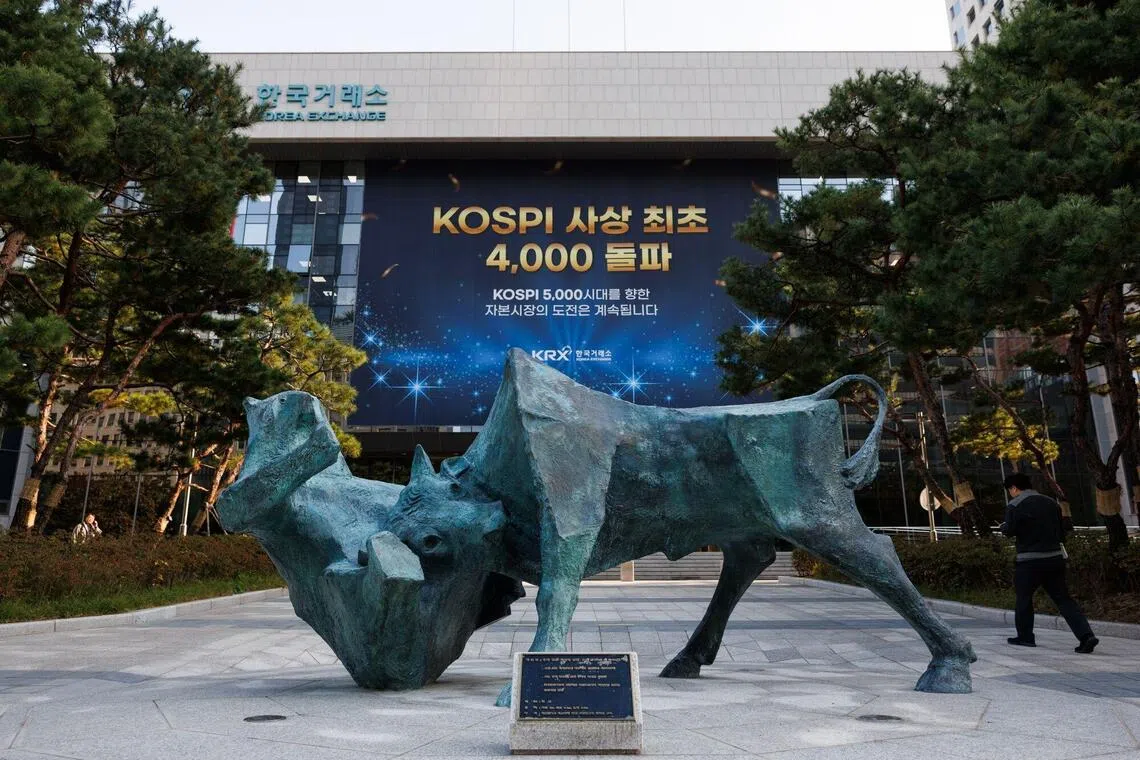Copyright straitstimes

SEOUL - The upstart challenger to South Korea’s main stock exchange is banking on fresh offerings, like digital tokens linked to K-pop song licences, to build on its strong start and broaden appeal. Nextrade, an alternative trading system that broke the Korea Exchange’s 70-year monopoly in March with extended trading hours, is weighing over-the-counter products to differentiate itself, chief executive officer Kim Haksoo said. Longer-term plans include leveraged and inverse exchange-traded funds (ETFs), advanced order systems, and non-displayed institutional orders that are derivative of the “dark pool” concept. “Rather than simply competing with the Korea Exchange, we need to consider whether we can secure competitiveness by offering products that it doesn’t have,” Mr Kim told Bloomberg News last week. “We need to compete on quality.” Mr Kim’s comments reflect Nextrade’s aim to be more than a typical trading venue, positioning itself as a disruptor in a market shaped by long-standing practices. By responding to retail investor demand and embracing emerging fintech trends, it hopes to expand what Korea’s markets offer and attract broader participation at home and abroad. Unconventional products A standout in Mr Kim’s niche-focused strategy is security tokens that allow investors to trade fractional K-pop music copyrights. Nextrade recently formed a consortium with Musicow, a marketplace that trades music copyright royalties through securities backed by compositions and sound recordings. The group is one of three applicants seeking preliminary approval to operate fractional investment platforms. “While others in this space have centered on real estate-backed securities, we’re dealing with securities based on intellectual property related to such things as K-culture,” he said. “The intellectual property behind Korean cultural content could open up new opportunities for product development in this space.” The company also plans to roll out a suite of ETFs, including leveraged and inverse ETFs, by June. Collectively owned by trade group Korea Financial Investment Association and local brokerages including Mirae Asset Securities, Nextrade launched with fanfare in March, offering 12-hour stock trading that drew explosive demand, especially from retail investors. Its daily average traded value hit 7.5 trillion won (S$6.7 billion) in September and surged to 13.3 trillion won in October, according to its documents. In comparison, Singapore Exchange’s September turnover was US$1.2 billion, according to its document. The strong start is prompting actions at its chief rival; the Korea Exchange said it’s reviewing longer trading hours and cutting trading fees. Nextrade’s growth, however, is constrained by a law that caps alternative trading systems’ total trading volume at 15 per cent of that of the Korea Exchange. Mr Kim, a former Financial Services Commission official who led the formation of capital markets legislation on alternative trading systems, said he’s lobbying to change that. To abide by the 15 per cent rule, Nextrade artificially reduced its liquidity by suspending trading of some stocks, including Kakao Corp. The exchange now trades 630 stocks, down from about 800 names in its early days. “There are various opinions on the regulation’s purpose,” the 60 year-old executive said. “But regulators know its problems, and discussions are ongoing. I expect changes eventually.” Mr Kim, who begins his second 2.5-year term as CEO this week, is also contending with growing speculation about an initial public offering. The company’s 34 shareholders are eager for a swift listing, and Mr Kim shares that hope but says it’s too early to discuss any blueprint. His immediate focus is on the company’s product lineup, particularly as its key advantages over the Korea Exchange - longer trading hours and lower fees - may erode over time. “The time has come for a truly fierce competition,” he said. BLOOMBERG



